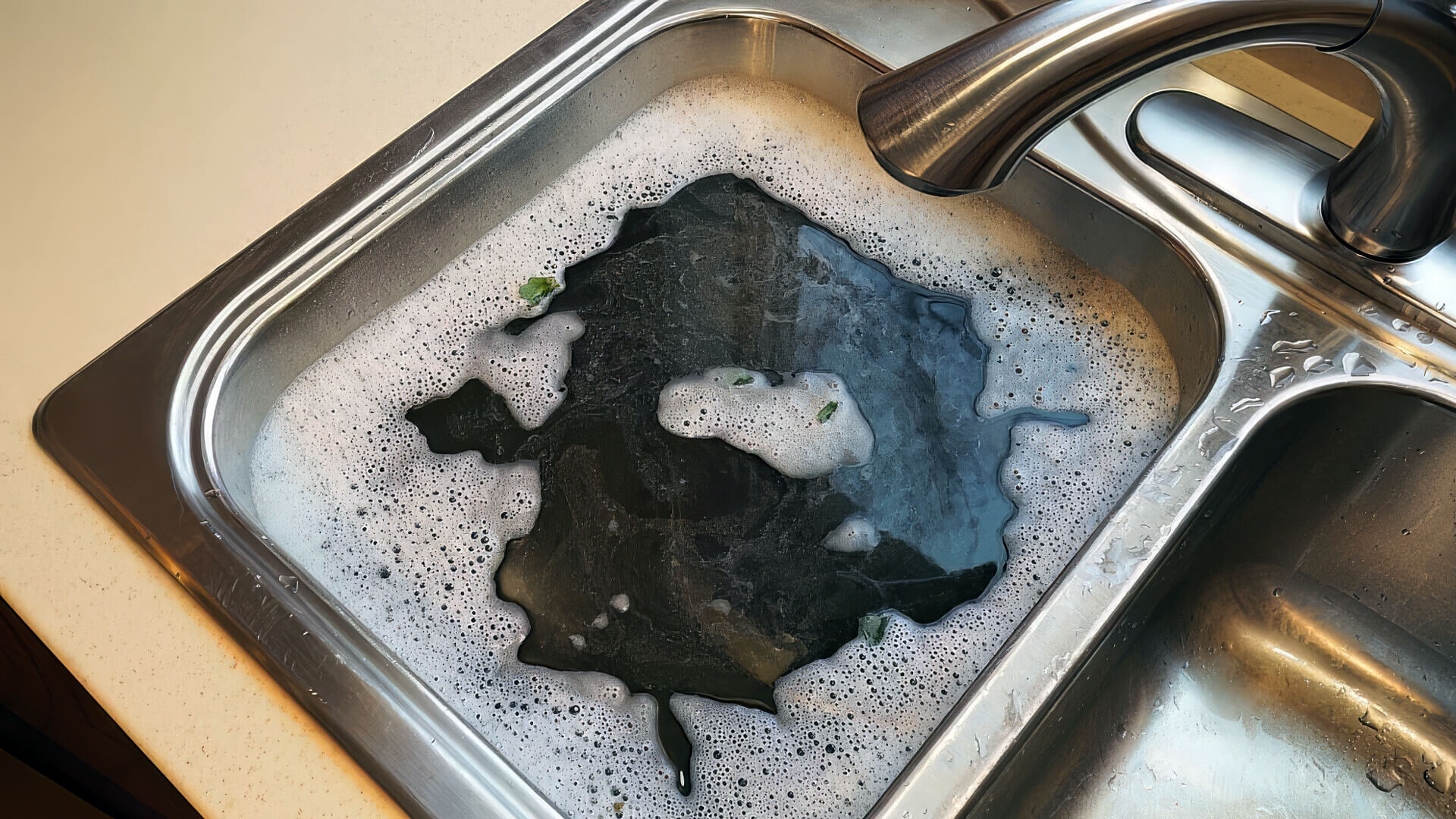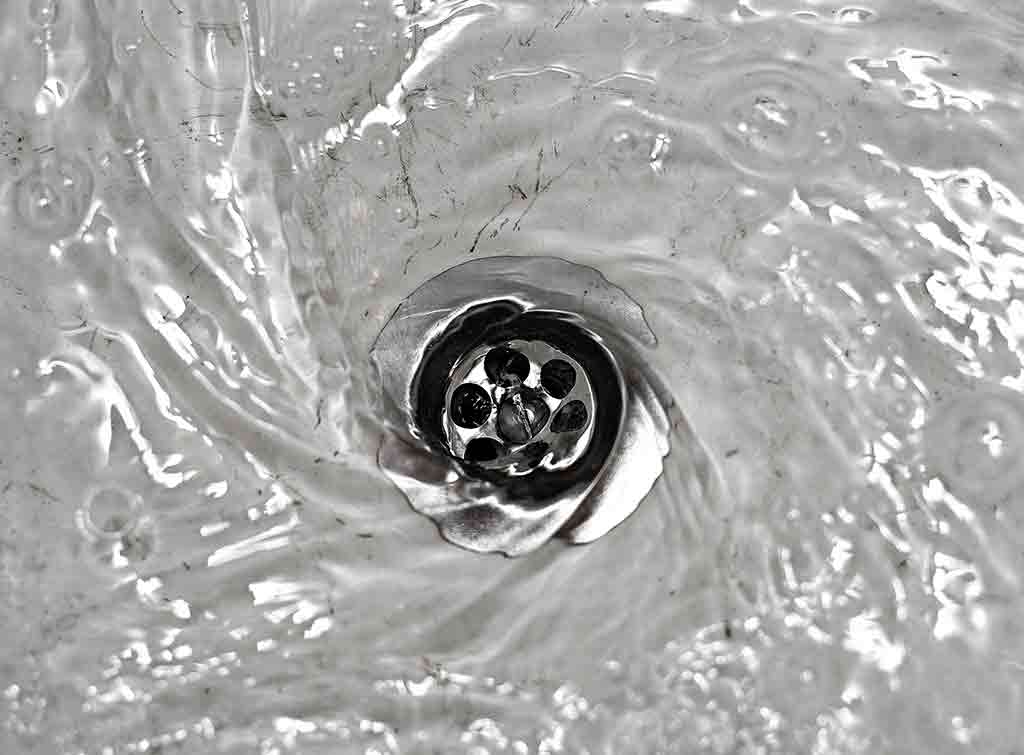Trusted Strategies For Addressing A Slow-Draining Sink
Trusted Strategies For Addressing A Slow-Draining Sink
Blog Article
Just about everyone maintains their own individual opinion in relation to 4 Tips to Fix a Slow Draining Sink.

Introduction
We have actually all existed: You're cleaning your teeth or cleaning your hands, and you discover the water pooling in the sink. Instead of promptly swirling down the drain, it sticks around, turning your once-refreshing early morning routine right into a miniature overload scene. A slow-draining sink isn't just irritating; it's usually a sign of larger plumbing problems hiding underneath the surface area. The good news is that a lot of slow-draining sinks can be taken care of with a little expertise, a couple of fundamental devices, and some patience. Ready to tackle this task head-on? Allow's roll up our sleeves and dive right in.
Understanding the Reasons For a Slow-Draining Sink
Before you start poking around in your pipes, it helps to understand what may be creating the downturn. Recognizing the source makes it less complicated to pick the ideal fix.
Devices and Materials You'll Need
The right devices make all the difference. The good news is, you will not require a completely stocked plumbing's van to get the job done.
Step-by-Step Overview to Fixing a Slow-Draining Sink
Currently, allow's enter into the nitty-gritty. This step-by-step process will certainly guide you via simple strategies to recover your sink's drain.
Step 1: Get Rid Of and Clean the Stopper
Usually, the stopper (that little plug you lower to block water) is the very first perpetrator. Remove it very carefully and clean off any hair or crud caught around its base. Rinse it thoroughly before placing it back in place.
Step 2: Use a Plunger to Displace Debris
Got that bettor prepared? Setting it over the drain and offer it a few company pumps. The concept is to develop suction that can loosen up any blockage. If you see bits of debris drifting up, you get on the ideal track.
Action 3: Try a Drainpipe Snake or Wire Wall Mount
If the bettor does not do the trick, it's time to draw out the drain serpent. Carefully feed it right into the drainpipe and spin as you go. You might really feel some resistance-- that's most likely the obstruction. Keep turning and pulling until you eliminate the blockage. If you do not have a drain serpent, an aligned cable wall mount can operate in a pinch.
Step 4: Apply a Do It Yourself Drainpipe Cleanser
A natural cleaner made from baking soft drink and vinegar can break down residual gunk. Pour half a cup of baking soda into the drainpipe, adhered to by half a mug of vinegar. Let it fizz for about 15 minutes, after that flush with hot water. This chemical reaction usually does wonders for minor blockages.
Step 5: Rebuild and Examine the Sink
Put whatever back together and run the faucet. Does the water now swirl away at a commendable rate? If yes, provide yourself a pat on the back. If not, do not misery-- there are still a couple of more dress up your sleeve.
Necessary Devices for Do It Yourself Fixes
A plunger is your go-to beginning point. A little, sink-sized plunger produces suction that can dislodge minor clogs. For more persistent blockages, a drainpipe snake (in some cases called a plumbing's auger) functions marvels. A set of handwear covers, a flashlight, and possibly a pair of safety goggles are likewise useful.
Advised Cleansing Solutions
Light recipe soap and warm water can assist break down oily accumulation. A blend of cooking soft drink and vinegar is a reliable natural remedy, and chemical cleansers offer an even more green technique. Keep chemical drainpipe cleaners as a last hope, as they can be severe on your pipes.
Usual Wrongdoers Behind Slow Water Drainage
So, what's blocking things up? Usually, it's a mix of everyday debris-- assume hair, soap residue, toothpaste deposit, and remaining food particles. In time, these tiny bits accumulate and cling to the pipeline wall surfaces, gradually narrowing the passage and making it harder for water to travel through. In some cases, mineral deposits from hard water can also include in the gunk, creating the excellent tornado for stubborn blockages.
When is it Time to Do Something About It?
If you discover the water draining pipes slower than normal, it's a great idea to step in earlier as opposed to later. Waiting as well long might cause finish clogs, undesirable smells, or perhaps pipe damage. If the water takes more than a few seconds to remove after switching off the faucet, consider it a warning and prepare yourself to put on your DIY hat.
Safety And Security First: Preventative Measures and Prep work
Prior to you launch into unclogging mode, think of safety. You're handling potentially filthy water and particles, so slip on a pair of gloves. If you're using chemical cleaners, guarantee the space is well-ventilated and follow the guidelines on the label.
Protective Gear and Work Space Arrangement
Put down some old towels or rags around the sink area to capture dashes. Clear away any products that might get in your method, like soap dispensers or tooth brush holders. Make certain you have good lighting-- order a flashlight if needed.
Alternative Techniques for Stubborn Clogs
Not all blockages are developed equal. If your sink still declines to work together, take into consideration these different remedies.
Baking Soda and Vinegar Method
We already discussed this, but it deserves keeping in mind again. This mild, eco-friendly technique is much safer than chemical cleansers and frequently fairly reliable.
Enzymatic Drain Cleansers
Enzyme-based cleaners make use of all-natural germs to digest organic matter. They're an excellent selection if you're seeking to prevent severe chemicals. Simply remember, they may take a bit longer to work their magic.
Chemical Drainpipe Cleaning Company: Pros and Cons
Chemical cleaners can blow up via hard clogs quickly, but they're not without disadvantages. They can create warm and fumes, damage pipelines if made use of exceedingly, and present ecological dangers. Utilize them sparingly, and constantly follow the instructions carefully.
Preventive Measures to Keep Your Sink Flowing
Prevention is the best cure. By adopting a few easy habits, you can maintain your sink from reducing to begin with.
Routine Cleaning Routines
Wipe down the sink container and component area frequently. Eliminate hair or food fragments before they have a possibility to wash down the drainpipe.
Staying Clear Of Unsafe Substances Down The Tubes
Think twice prior to dumping coffee grounds, grease, or coarse veggie scraps down the sink. These culprits cling to pipe wall surfaces, creating obstructions over time.
Regular Upkeep Checks
Arrange a quick month-to-month evaluation. Run hot water through the sink for a couple of mins, focusing on the flow. If it seems sluggish, act fast prior to it ends up being a full-blown obstruction.
When to Call a Specialist Plumbing Professional
Occasionally, despite just how hard you try, that block simply will not budge. That's when it's time to generate the pros.
Indications That Show an Extra Severe Concern
If your sink drains slowly in spite of numerous efforts, or if you notice water supporting in other components (like your shower or toilet), you might have an extra major plumbing problem prowling much deeper in the system.
Balancing DIY Efforts with Specialist Aid
While do it yourself can conserve you cash and supply a feeling of success, there's no embarassment in calling a specialist. A specialist plumbing can analyze your entire pipes arrangement, guaranteeing there's no underlying damage or lasting trouble that might cost you much more in the future.
Contrasting Expenses and Long-Term Solutions
Before choosing, think about the big picture. An inexpensive, quick fix might fix the issue momentarily, however purchasing a more irreversible service can conserve you money and tension in the future.
Evaluating the Expenditures of DIY vs. Specialist Solutions
DIY fixes usually set you back little more than the cost of a plunger or a bottle of baking soda. Professional solutions, on the other hand, come with a cost but might stop repetitive problems and costly repair work later on.
Purchasing Top Quality Fixtures and Upgrades
If your sink's design contributes to frequent obstructions, it could be worth upgrading to higher-quality components or changing the plumbing layout. Consider this a financial investment in your house's performance and comfort.
Verdict
A slow-draining sink can seem like a minor inflammation, but it's usually an indicator that your plumbing needs a little TLC. By understanding the origin, employing the right tools and strategies, and devoting to basic preventive measures, you can maintain your sink flowing easily. And when all else falls short, never wait to hire an expert-- your home's pipes is worth the investment in care and maintenance.
Three Common Ways to Fix a Slow Drain
Baking Soda Method
Boil a full pot of water. Measure out cup of baking soda and pour it down the drain. Then take cup of the magical cleansing substance known as white vinegar and drop that down there too. Allow the mixture to fizz in the drain for five minutes as the vinegar and baking soda combine. Now dump in that whole pot of boiling water. This combination of cleaning substances should clear out anything that is causing your sink to drain slowly. If it doesn t...
Zip-It
If the baking soda method doesn t clear out your drain, it may be because a significant amount of hair and/or other debris has collected there and you need to remove it. Purchase a Zip-It tool at any home improvement or hardware store and insert it into your drain. It will catch any collected hair or debris that s blocking the flow of water. Pull it out. If it s got a big clump of hair, etc. on the end, you ve probably got your culprit.
Drain Cleaner
If these methods don t work, there is the standard drain cleaner that you can also buy in a hardware store or even your local grocery store. It s better if you can use a household solution, but these drain cleaners often work in a pinch. They re very simple to use. You generally just dump them in your drain and wait. If even this method is not effective, it may be time to call the plumber.
https://www.mrrooter.com/oneida/about-us/blog/2017/july/three-common-ways-to-fix-a-slow-drain/

I found that content on Three Common Ways to Fix a Slow Drain while exploring the search engines. So long as you enjoyed reading our article please consider to pass it around. I thank you for your readership.
Get A Free Estimate Report this page